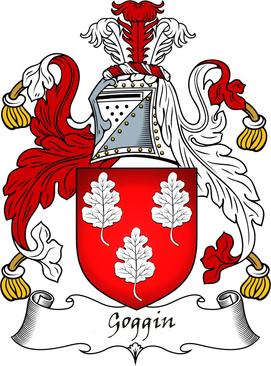Related Research Articles
Blake is a surname which originated from Old English. Its derivation is uncertain; it could come from "blac", a nickname for someone who had dark hair or skin, or from "blaac", a nickname for someone with pale hair or skin. Another theory, presumably in the belief it is a Welsh patronymic in origin, for which there is no evidence, was that it is a corruption of "Ap Lake", meaning "Son of Lake".
Fitzpatrick is an Irish surname that most commonly arose as an anglicised version of the Irish patronymic surname Mac Giolla Phádraig "Son of the Devotee of (St.) Patrick".
Mullen is a surname of Irish origin. Notable people with the surname include:
Butt is a German and an English surname whose origins lie in the South West peninsula region of England.
Prendergast is a British and Irish surname.
Courtney is an English surname originating from England, France and Ireland, where it was of Norman origin.
Pullen is an uncommon English surname with a purported Norman origin.
Adamson is an English patronymic surname meaning "son of Adam". It is rare as a given name, although there has been a tradition in some families for the first-born son to be called Adam. People with the surname Adamson include:

McGowan is an Irish and Scottish surname. It is an Anglicization of the Irish Mac Gabhann and Scottish Mac Gobhann, both of which mean 'son of (the) smith'. Belonging to the Uí Echach Cobo, located in modern-day western County Down, Ulster, they were of the same stock as the McGuinness clan.
Reynolds is a surname in the English language. Among the earliest recorded use of the surname is from the early 14th century.
French is an anglicised version of Defreine, which has a Norman origin. Although the name is of French origin, it does not mean "French"; rather, it comes from the French word for ash tree.
Thomson is a patronymic surname meaning "son of Thom, Thomp, Thompkin, or other diminutive of Thomas", itself derived from the Aramaic תום or Tôm, meaning "twin". The surname is documented in Cheshire records before and after the 1066 Norman Conquest. Variations include Thomason, Thomasson, Thomerson, Thomoson, and others. The French surname Thomson is first documented in Burgundy and is the shortened form for Thom[as]son, Thom[es]son. Variations include Thomassin, Thomason, Thomsson, Thomesson, Thomeson, and others. Thomson is uncommon as a given name.
Howard is a common English surname. One source for this surname is with the Gaelic names Ó hOghartaigh and Ó hIomhair. Other origins also exist. The dominant theory pertains to the French personal names Huard and Houard adapted after the Norman Conquest of 1066. It is from a Germanic source similar to Old High German *Hugihard "heart-brave," or *Hoh-ward, literally "high defender; chief guardian." Also probably in some cases a confusion with cognate Anglo-Scandinavian personal name Haward from Hávarðr, which means ha(r) "high" and element varðr, meaning "guardian", and sometimes also with unrelated Hayward. In some rare cases from Old English eowu hierde "ewe herd." In Anglo-Norman the French digramm -ou- was often rendered as -ow- such as couard → coward, tour → tower, flour → flower, etc. The first public record of the surname is dated 1221 in Cambridgeshire. There are several variant surname spellings.
Burgoyne is a surname introduced to England following the Norman conquest of 1066, which denoted someone from Burgundy. Notable people with the name include:
Norman is both a surname and a given name. The surname has multiple origins including English, Irish, Scottish, German, French, Norwegian, Ashkenazi Jewish, and Jewish American. The given name Norman is mostly of English origin, though in some cases it can be an Anglicised form of a Scottish Gaelic personal name.

Goggin is a surname.
Fay is an Irish surname that also arose independently in France. There are different theories about the origin and meaning of the surname.
Piper is a surname of German, English, French and Scandinavian origin, derived from the Old English "pipere" and the Old Norse "pipari", meaning "flute" or "fluteplayer", originating from long pepper in Indo-Aryan languages. People with the surname include:
Tighe is an Irish surname, derived from the Old Gaelic Mac Tighe, which originated in Galway, or O Taidhg. Notable persons with that name include:
References
- ↑ Name Origin Research (2022). "Last name: De Freyne". SurnameDB. Retrieved 4 April 2022.